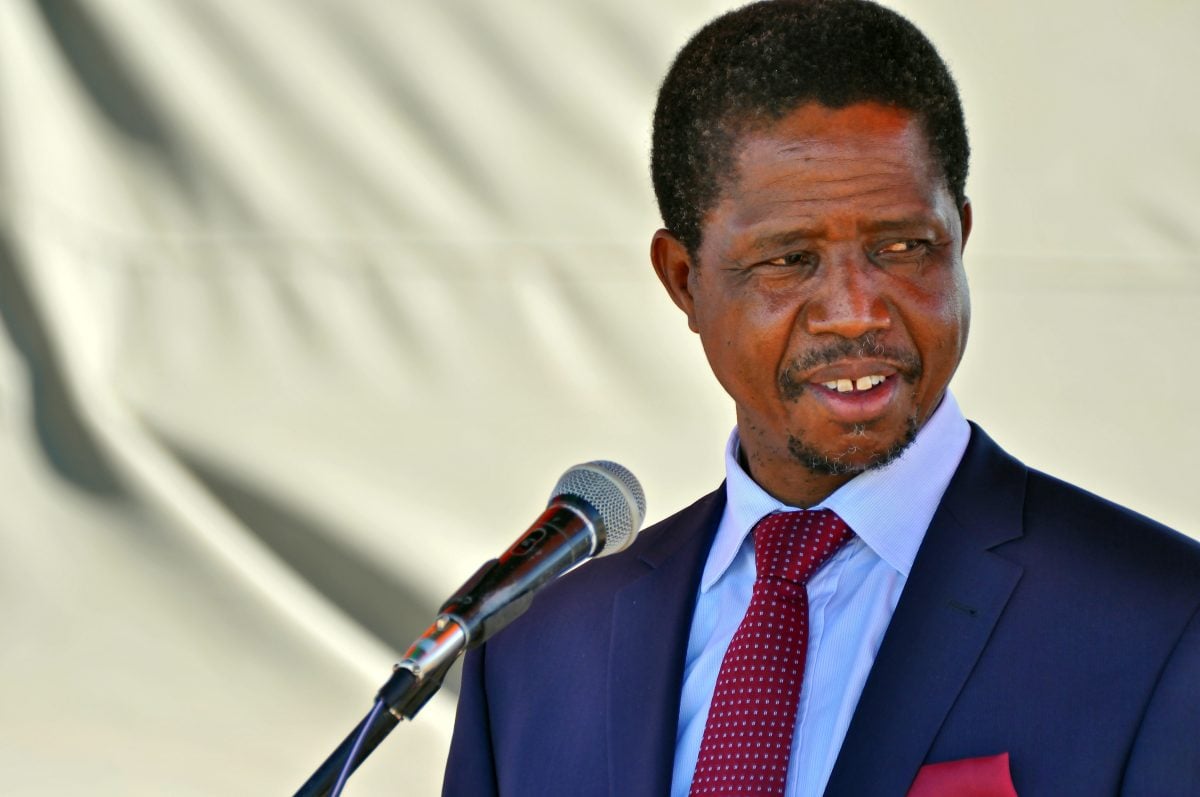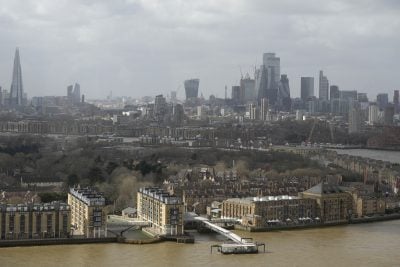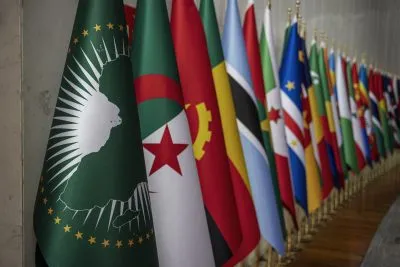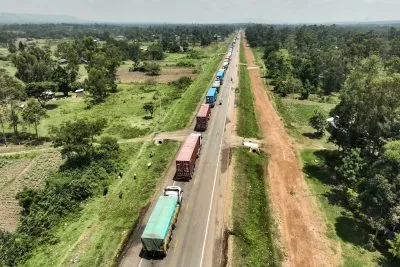Even prior to the coronavirus pandemic, Zambia’s economy was sluggish, with mismanagement and unpredictable policy driving investors away from the continent’s second-largest copper producer.
Zambia’s currency, the kwacha, is the continent’s worst performer this year and more than $11bn is owed to foreign creditors. Supply chains in the country’s main trading partners, such as China and South Africa, have been disrupted by the virus, with demand for Zambia’s mining commodities suffering. Overall, the economy is expected to contract by 4.5%, according to the World Bank.
Such an ominous backdrop calls for a steady hand. And yet, in late August, President Edgar Lungu abruptly sacked central bank governor Denny Kalyalya without giving an official reason. The experienced Kalyalya had pressed the government to rein in its spending ahead of elections in 2021, say analysts. The move could sink the southern African economy further into the mire at a moment of reckoning for the region.
A decade of sound fiscal policy and strong commodity prices saw Zambia achieve middle-income status in 2011 and GDP growth of roughly 6.8% annually until 2014. In recent years, however, growth has stalled. The economy expanded at 3.1% annually between 2015 and 2019, constrained by falling copper prices and light rains, which hit agricultural output and hydro-electric power generation.
In 2019, it grew by just 1.4%, as severe electricity rationing dampened economic activity. The end of that year saw public debt reach 80% of GDP, following a free-spending infrastructure boom, much of it funded by Chinese creditors and private bondholders.
“Seven or eight years ago, they really were the darling of the global financial markets. They had gotten their house in order, had strong governance and the money seemed like it was being put to good use,” says Melissa Cook, managing director of African Sunrise Partners, a business research company. “That whole structure has clearly fallen apart.”
In early October, Zambia appeared to be the first African country heading for a debt default in the Covid era after asking investors in $3bn of US dollar bonds to accept a six-month delay in interest payments.
“Countries that have significant exports of a commodity tend to get most of their foreign exchange from commodity sales,” Cook says. “And with prices and volumes dropping, those countries have a real structural problem with their forex.”
Threats to currency
With the kwacha down 30% against the dollar since January, inflation is at 16%. There are fears it could spiral if Lungu, 63, decides to print money to pay off government debt. An inclination to do this might be what set him on a collision course with sacked central bank governor Kalyalya. A former World Bank official, Kalyalya repeatedly urged the government to trim its fiscal deficit.
News of his departure, three years early, sank the kwacha to a record low of 19.20 to the dollar and caused the value of Zambia’s eurobonds to plunge. It even drew rare criticism from Tito Mboweni, South Africa’s finance minister, who wrote on social media: “Presidents in Africa must stop this nonsense of waking up in the morning and fire [sic] a central bank governor.” The comments drew a mild rebuke from Cyril Ramaphosa, South Africa’s president, who called them “unfortunate”.
“It was very shocking because Dr Kalyalya has performed very well as the central bank governor in the midst of very difficult economic circumstances,” says Trevor Simumba, a Zambia-based economist. “It has nothing to do with the economy. He was fired because this president wants to do whatever it takes to win next year’s election.”
Economists say long-term economic growth is contingent on the independence of central banks. “It is imperative that central banks’ operational independence and credibility is maintained, particularly at this critical time when economic stability is threatened by the Covid-19 pandemic,” the IMF said in a release following the sacking. “Without credible institutions and sound policies, sustained economic growth and much needed improvements in living standards will not be possible.”
‘Lungu wants a compliant governor’
Kalyalya’s replacement, whose appointment must be ratified by parliament, looks unlikely to cheer investors. A trained accountant, Christopher Mvunga worked for Standard Chartered before entering politics and rising to the position of deputy finance minister. He has no central banking experience.
“He is not qualified to be governor, that is very clear,” says Simumba. “President Lungu wants a compliant governor, a governor who will, if they need to print money, say ‘OK, we’ll print money.’”
In recent months, the government has steadily increased its reliance on the Bank of Zambia, with government bonds held by the bank rising tenfold, from 2bn kwacha at the start of last year to nearly 20bn kwacha ($1bn) this July.
Confrontations with mining companies
The slugging match at the central bank follows confrontations with big miners. With Glencore-run Mopani mine on care and maintenance, Zambia’s state-owned mining investment company, ZCCM Investments Holdings, is looking to buy a controlling stake to keep it running and protect jobs. Earlier this year, Lusaka threatened to revoke the Swiss company’s mining licences and briefly barred Mopani’s CEO from leaving the country.
Unenthused by the impasse and Zambia’s business climate, Glencore plans to sell its entire 73.1% stake in Mopani. Many wonder how the debt-ridden government can afford to buy it, given that Mopani’s total liabilities exceeded its total assets by $2.6bn in 2019, according to a Glencore financial statement. The mine costs around $931m a year to operate, while Zambia’s foreign exchange reserves totalled $1.3bn in January of this year. Analysts say the move is political.
“The copper belt is highly populated and has a significant say in who becomes president,” Simumba says. “It’s more of a knee-jerk reaction from the government.”
All the while, Zambia faces $1.5bn in debt repayments this year. In April, Fitch Ratings cut the country’s credit rating to double C and called a default “probable”. Growth will return to 3.1% in 2021 after a contraction this year, Fitch said.
Simumba says many of the country’s 18m people are suffering, with rising prices, job losses, companies closing and investors staying away. Some smallholder farmers are declining to sell crops to the government because it is not offering a decent price, he says.
Meanwhile, Zambia’s population is expected to double every 25 years, adding pressure on demand for jobs, healthcare and social services.
Cause for optimism?
Some experts say there is little cause for optimism. “For a number of years private sector investors have really not felt that this was a stable, productive environment for them,” Cook says, “so the country really has not had the development that it needs.”
Nevertheless, a pre-election spending spree, permitted by a compliant central bank, could propel Lungu to victory and further undo 15 years of solid growth.
Simumba is more optimistic, and sees reform as likely, regardless of who wins next year. “I don’t see this current government continuing on this path of self-destruction because the economy is basically on its knees,” he says. “We need to get back up.”
Want to continue reading? Subscribe today.
You've read all your free articles for this month! Subscribe now to enjoy full access to our content.
Digital Monthly
£8.00 / month
Receive full unlimited access to our articles, opinions, podcasts and more.
Digital Yearly
£70.00 / year
Our best value offer - save £26 and gain access to all of our digital content for an entire year!
 Sign in with Google
Sign in with Google 



